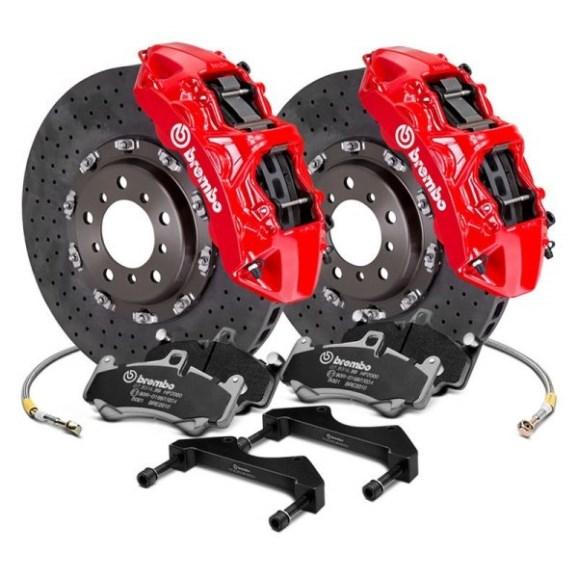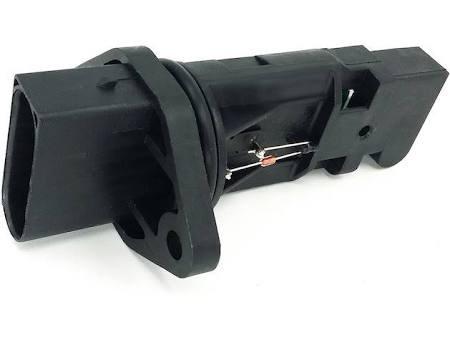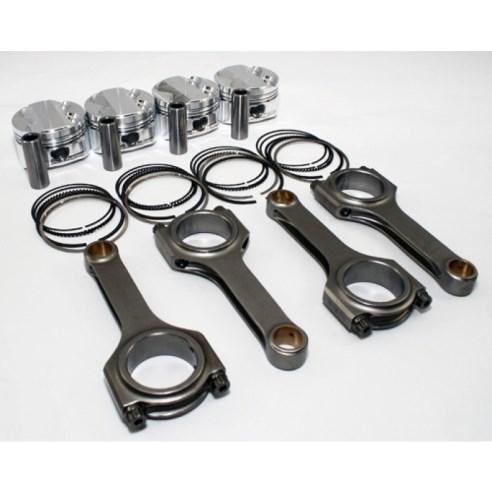
4 minute read
PEDRO S GARAGE AGM INFO PACKAGE

Porsche Parts You’re going to undertake a service or repair project on your Porsche. You do the research, look at YouTube videos and DIY guides and you’re confident that you can tackle it. Now you need to get the parts. Question is, do you go with genuine Porsche parts, OEM parts or aftermarket parts? And, what are the differences, if any between them? Genuine Porsche Parts These parts can be purchased at any Porsche dealer and/or through Porsche’s distribution network. You can tell that it is a genuine part because it will be offered in its original Porsche packaging, showing the Porsche part number and with identification labels. Any genuine Porsche part has gone through Porsche’s quality control system to assure that they deliver performance exactly as what the factory intended. Most of the time, when you purchase a genuine Porsche replacement part it will be identical to the one installed at the factory but not always. If the part has been revised it will have a newer version number where the last 2 digits of the part number changes upward by one digit for every revision. Also in some cases the new revised part will be superseded by a new part which may be made of a different material and could be slightly different as the original part, but it will fit and function as intended.
Advertisement

OEM Parts Original Equipment Manufacturer is a part that has been manufactured by one of Porsche’s official parts suppliers. Just like most automobile manufacturers, Porsche does not make all of the parts that go on their cars. They contract with hundreds or thousands of suppliers which have been rigorously vetted to produce exactly what the factory requires. As an example, Porsche uses Brembo (Italian manufacturer) as an OEM supplier of brake parts. Brembo makes brake calipers, rotors and pads for specific Porsche models. If you purchase a genuine Porsche brake part it could have been made by Brembo, but would be packaged under the Porsche brand as a genuine part. That same part could also be sold, without the Porsche packaging or part number, directly by Brembo or one of its distributors. The same would apply to other OEM suppliers, such as Bosch (electronics, sensors, injectors, etc.), Sachs (clutch kits), Bilstein (suspension), Lemforder (mounts), etc., etc.

Aftermarket Parts Aftermarket doesn’t necessarily mean that it’s an inferior quality part. In some cases, aftermarket parts can be an improvement on an original part, such as specialized pistons, rods and valves which can be made lighter and stronger than the originals. In other cases we see many aftermarket parts that are junk parts, made cheaply and sold cheaply. We see water pumps, Air/Oil separators, Mass Airflow Sensors, etc. which fall into this category. I had always wondered why it was that I could purchase a part such as a Mass Airflow Sensor as an aftermarket part with the Porsche part number but sold at 50% of the dealer’s price for the equivalent genuine version.

A couple of years ago I had the chance to speak with several folks from the factory who explained it to me this way: When Porsche orders a batch of parts from one of its OEM suppliers, they request a specific number of them. The manufacturer needs to make a larger amount than what Porsche ordered because they know that the parts will be tested and a number of them will not be acceptable to the factory. Those parts that are not accepted are returned to the manufacturer and then can then be sold as aftermarket, although most are offered as OEM parts (which they are). If a particular part is tested and the acceptable range is 1.0 –1.5 volts, anything that is outside those values is rejected. The part could have shown 0.999 volts or 1.501 volts which would be a pretty darn good part or it could have read 0.5 or 2.0 volts which would not allow it to perform its function properly, yet the are both sold as the same part by the OEM supplier. You take a risk if you purchase that way. Some people say that they will buy two parts and have a spare in case the first one fails, but some of those parts can actually cause damage to the vehicle, such as a crankshaft or camshaft position sensor and some could actually hurt you, such as with a faulty ABS or brake component. For more information on Porsche parts and more, please visit my website: www PedrosGarage.com


Happy Porsche’ing, Pedro P. Bonilla
GCR PCA
Technolab / PedrosGarage.com







